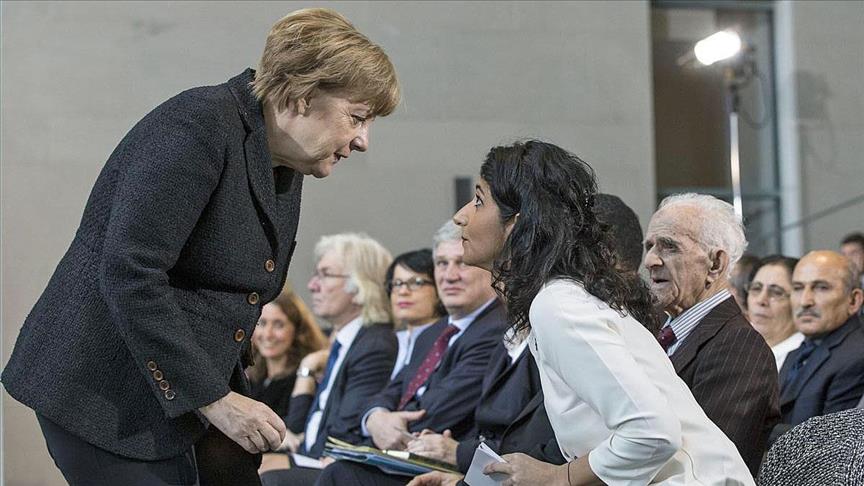-
Tips for becoming a good boxer - November 6, 2020
-
7 expert tips for making your hens night a memorable one - November 6, 2020
-
5 reasons to host your Christmas party on a cruise boat - November 6, 2020
-
What to do when you’re charged with a crime - November 6, 2020
-
Should you get one or multiple dogs? Here’s all you need to know - November 3, 2020
-
A Guide: How to Build Your Very Own Magic Mirror - February 14, 2019
-
Our Top Inspirational Baseball Stars - November 24, 2018
-
Five Tech Tools That Will Help You Turn Your Blog into a Business - November 24, 2018
-
How to Indulge on Vacation without Expanding Your Waist - November 9, 2018
-
5 Strategies for Businesses to Appeal to Today’s Increasingly Mobile-Crazed Customers - November 9, 2018
Merkel heads to her party congress
Ms Merkel told a congress of her Christian Democratic Union on Monday that her decision in early September to let in refugees stranded in Hungary was “a humanitarian imperative”.
Advertisement
At a pivotal party congress of her Christian Democratic Union (CDU), Merkel said Germany would pursue a range of measures to stanch the flow of asylum seekers, slated to number around one million people this year. She does not face a general election until 2017 and she has made sure that as yet there is no politician of sufficient stature within her party who is able to challenge her for the Chancellor’s job.
German media commentated that with the influx of refugees in Germany now tipping one million, a huge challenge still lies ahead, especially as German society works to integrate its new members.
Merkel boasted that it was her party that extended the “safe countries of origin” list to include three Balkan states; Serbia, Bosnia and Herzegovina, and Macedonia. Merkel has declared that “we will manage it”, but some in her conservative bloc have urged a tougher approach.
Despite the humanitarian move, the arrival of so many refugees in Germany has resulted in a xenophobic backlash from far-right groups with a rising number of cases of arson attacks on refugee shelters, assaults, and swastikas sprayed on walls. “Of course we are going to have an intense debate about this”, Merkel said on public television ARD late 13 December.
Still the chancellor who last week was named Time magazine’s Person of the Year stuck to her optimistic mantra, insisting that Germany can handle the migrant crisis “because it is part of the identity of our country to do great things”.
But the Chancellor also stuck doggedly to her previous line, which envisages solving the refugee crisis though European co-operation, global diplomacy and financial support for those countries worst affected by the crisis.
She has effectively said that by going against her, they would be going against the founding fathers and ideals of their party and of modern Germany – and that’s a hard charge to brush off, especially as the CDU continues to lead the polls.
She faces calls to shift her stance from her party’s youth organization, a caucus representing Germany’s small and midsize companies and a lobby for local governments.
“Merkel has invested all of her political and personal capital in this issue”, Berlin’s daily Tagesspiegel wrote on Sunday.
Local media noted that Merkel has won the first round with the right-wing dissenters in the run-up to the congress by successfully shooting down a proposal to set a specific cap on the number of asylum seekers that Germany would resettle.
Advertisement
She drew loud applause as she repeated her rallying cry “We can do it” during an impassioned hour-long speech, capped by nine minutes in which the 1,000 delegates took to their feet to cheer their chancellor, who beamed and waved to the crowd.





























